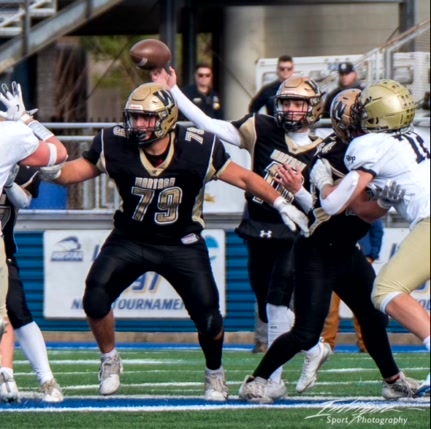This year we celebrate the 150th anniversary of the end of the American Civil War. The two most noteworthy events are General Grant’s acceptance of Gener al Lee’s surrender at Appomattox Courthouse (April 9, 1865) and Lincoln’s assassination (April 14, 1865). Just about every location in the existing 34 United States, as well as their adjoining territories, was affected by the war. Many young men fought and died, more than 600,000 deaths, in fact, an astounding number for those days, representing 15 percent of all soldiers involved in the war.
al Lee’s surrender at Appomattox Courthouse (April 9, 1865) and Lincoln’s assassination (April 14, 1865). Just about every location in the existing 34 United States, as well as their adjoining territories, was affected by the war. Many young men fought and died, more than 600,000 deaths, in fact, an astounding number for those days, representing 15 percent of all soldiers involved in the war.
Leaders on both sides came from all states, but most were graduates of the United States Military Academy at West Point. Massapequa was home to one of them: Colonel Delancey Floyd-Jones. Those familiar with Massapequa’s history recognize the name as one of the Jones/Floyd-Jones family members that owned this entire area. Others may know the name from the library he founded on Merrick Road in 1896. This article will honor his memory as well as America’s Civil War.
Delancey Floyd-Jones was born in 1826, the son of Major General Henry Onderdonck Floyd-Jones, who fought in the War of 1812 and was later a New York S tate Senator. Delancey’s brother, Edward, became a state senator, but he followed in his father’s military footsteps, entering West Point in 1841. Students at that time commonly entered college in their mid-teens, so his experience was typical. His progress through the Military Academy was not especially distinguished, as academic records show him ranking 45th out of 60 in his graduating class. Nevertheless, he graduated in 1846 and was immediately assigned to the Mexican War, following earlier West Point graduates such as Ulysses S. Grant, Robert E. Lee, Philip Sheridan, Winfield Scott and fellow classmates George McClellan, Thomas (Stonewall) Jackson and George Pickett.
tate Senator. Delancey’s brother, Edward, became a state senator, but he followed in his father’s military footsteps, entering West Point in 1841. Students at that time commonly entered college in their mid-teens, so his experience was typical. His progress through the Military Academy was not especially distinguished, as academic records show him ranking 45th out of 60 in his graduating class. Nevertheless, he graduated in 1846 and was immediately assigned to the Mexican War, following earlier West Point graduates such as Ulysses S. Grant, Robert E. Lee, Philip Sheridan, Winfield Scott and fellow classmates George McClellan, Thomas (Stonewall) Jackson and George Pickett.
The Mexican War has been called the training ground for the Civil War because it gave men with leadership ability a chance to demonstrate their talents. Floyd-Jones’ conduct earned him promotion to First Lieutenant “for gallant and meritorious service (a phrase repeated many times in his military record) in the Battle of Molino Del Rey, Mex.” After the war, he was assigned to several locations in the Midwest and West, and fought in the Rogue War in Oregon, earning promotion to Captain.
When the Civil War broke out in 1861, Floyd-Jones was promoted to Major and assigned to the 11th Infantry, headquartered in Boston, and was responsible for training new recruits. His company was assigned to frontline duty in 1862 and participated in the Virginia Peninsular Campaign. He led troops at the battles of Yorktown, Gaines Mill and Malvern Hill. He was promoted to brevet Lieutenant Colonel “For gallant and meritorious service during the Peninsular Campaign.” He subsequently fought at Bull Run, Antietam and Chancellorsville, and, in July 1863, led his brigade in the defense of Gettysburg. General Lee wanted to capture the high ground south of the town of Gettysburg, using that as a staging ground to march further east through Pennsylvania, hoping to persuade northern politicians to convince Lincoln to seek a truce. One of the fiercest battles was fought in the Wheatfield, where Union and Confederate tr oops fought for three days, until Floyd-Jones and his troops forced the Confederates to cease fighting. By day’s end (July 2), both armies, with a total force of 20,000 men, had suffered a 30 percent casualty rate. The next day, Lee made a frontal attack against the Union Army, but was stopped again, effectively ending his plan to bring the war to the North.
oops fought for three days, until Floyd-Jones and his troops forced the Confederates to cease fighting. By day’s end (July 2), both armies, with a total force of 20,000 men, had suffered a 30 percent casualty rate. The next day, Lee made a frontal attack against the Union Army, but was stopped again, effectively ending his plan to bring the war to the North.
Floyd-Jones was promoted to brevet Colonel “for gallant and meritorious service at Gettysburg.” One month later he was formally promoted to Lieutenant Colonel and assigned to defend the fortifications at Fort Independence, MA, and later to defend Boston Harbor, his earlier assignment. He remained at Boston until the end of the war. In the next three years, he was assigned to a variety of commands (recruiting, training, judge advocate), and was promoted to Brigadier General in 1868. His 1902 obituary notice quoted Lieutenant General George Sykes, who recommended him for the promotion: “As commander of the Fifth Corps, I had the opportunity to observe the zeal of Colonel Floyd-Jones in the campaign and battle of Gettysburg, and for those special instances and his services during the rebellion, respectfully recommend him for the brevet of Brigadier General in the army.”
The next article will describe Delancey Floyd-Jones’ post-war activities, his trip around the world and his founding of Massapequa’s first library.
George Kirchmann is a trustee of the Historical Society of the Massapequas. His email address is gvkirch@optonline.net.































